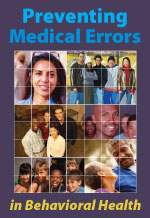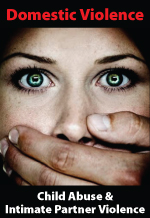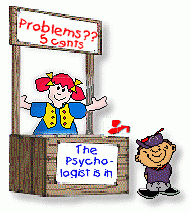By Kate Santich, Orlando Sentinel
Florida’s new child-abuse-reporting law, passed in the wake of the Penn State scandal, is being called the nation’s toughest, and its penalties could have wide-ranging consequences for both universities and ordinary citizens.
Colleges and universities that “knowingly and willfully” fail to report suspected child abuse, abandonment or neglect — or prevent another person from doing so — now face fines of up to $1 million for each incident. And individuals who fail to report abuse and neglect face felony prosecution and fines up to $5,000.
While previous laws have required reporting only when the suspected abuser was a parent or caretaker, the new statute — which took effect Oct. 1 — applies to any abuser, even those who are children themselves.
“It was just very important that we had a consistent law that made Florida the only true mandatory-reporting state in the nation — one where everyone is required to report,” said activist Lauren Book, a 27-year-old survivor of long-term childhood sexual abuse at the hands of her nanny. Founder of an advocacy and education organization called Lauren’s Kids, Book was a lead architect of the legislation, signed into law by Gov. Rick Scott earlier this year.
At the time, it was dubbed “the Penn State law,” coming as it did on the heels of charges against that university’s former longtime assistant football coach Jerry Sandusky, who was eventually found guilty on 45 counts of child sexual abuse. Because of testimony that other school officials knew about the ongoing abuse and either ignored it or covered it up, the university’s president was forced to resign, legendary football coach Joe Paterno was fired and the university was hit with tens of millions of dollars in fines.
Before the passage of Florida’s law — officially called the Protection of Vulnerable Persons Act — there was no legal requirement to report suspected abuse if the abuser wasn’t a parent or caretaker, said Press Secretary Erin Gillespie of the Florida Department of Children and Families. Her department is now charged with fielding all calls through its abuse hotline (1-800-962-2873). But allegations that don’t involve parents, legal guardians or other caretakers will be transferred to local law-enforcement agencies.
The law further directs DCF to develop a more user-friendly way to report online and possibly via email or text.
“People keep asking if calls will go up because now it’s a felony [not to report],” Gillespie said. “Well, if that scares people enough to call us, then, please, let them call. Most people realize that children are vulnerable, and any decent person who suspects abuse would report it anyway.”
The Legislature also budgeted more than $2.1 million in recurring funds for DCF to hire an additional 47 workers to handle the expected increase in workload.
“Overall, I want to applaud the legislators for doing a great thing,” said Attorney Howard Talenfeld, founding president of Florida’s Children First! and lead counsel in several landmark cases against the state’s child-welfare system. “This law is precedential.”
But Talenfeld said he is worried about the law’s unequal treatment of juvenile offenders.
The new law makes reporting of child-on-child abuse mandatory for the first time. Children 12 and under who are deemed perpetrators will be referred for treatment and therapy, but those 13 and up will be referred to law enforcement.
 The Florida Department of Health requires that healthcare professionals obtain two (2) hours of continuing education credit on domestic violence every third biennial licensure renewal period. Professional Development Resources provides courses on domestic violence to meet this requirement, and has updated their current offering to include the new child abuse reporting laws. The course is intended to help health professionals maintain a high state of vigilance and to be well prepared with immediate and appropriate responses when abuse is disclosed. There is a special section on the complexity of an abuse victim’s decision about if and when to leave an abuser. This course will teach clinicians to detect abuse when they see it, screen for the particulars, and respond with definitive assistance in safety planning, community referrals, and individualized treatment plans. For more info, please visit: https://www.pdresources.org/course/index/6/1111/Domestic-Violence-Child-Abuse-and-Intimate-Partner-Violence
The Florida Department of Health requires that healthcare professionals obtain two (2) hours of continuing education credit on domestic violence every third biennial licensure renewal period. Professional Development Resources provides courses on domestic violence to meet this requirement, and has updated their current offering to include the new child abuse reporting laws. The course is intended to help health professionals maintain a high state of vigilance and to be well prepared with immediate and appropriate responses when abuse is disclosed. There is a special section on the complexity of an abuse victim’s decision about if and when to leave an abuser. This course will teach clinicians to detect abuse when they see it, screen for the particulars, and respond with definitive assistance in safety planning, community referrals, and individualized treatment plans. For more info, please visit: https://www.pdresources.org/course/index/6/1111/Domestic-Violence-Child-Abuse-and-Intimate-Partner-Violence
Like this:
Like Loading...
 ALL CSW/MFT/MHC licensees and registered intern licenses will expire on March 31, 2013. You may renew your license online beginning January 2013.
ALL CSW/MFT/MHC licensees and registered intern licenses will expire on March 31, 2013. You may renew your license online beginning January 2013.











